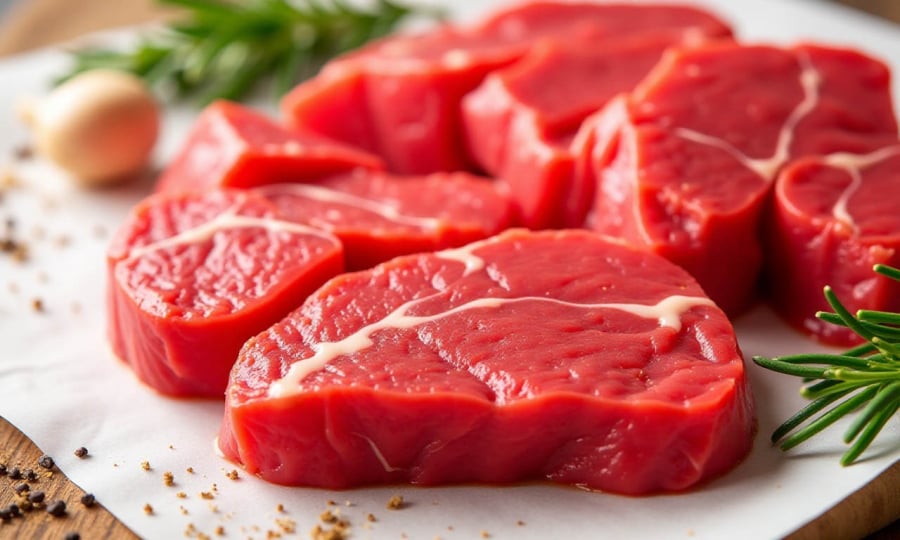Some foods don’t go well with pork and should be noted to ensure good health. Pork is a popular ingredient in Vietnamese cuisine and is not only delicious but also highly nutritious. However, not all foods are suitable to be combined with pork. Some foods, when consumed together, may hinder nutrient absorption or lead to toxin buildup in the body.
1. Soybeans: A Food to Avoid with Pork
Soybeans are among the foods that don’t pair well with pork and should be noted to avoid any negative impact on health. Soybeans are rich in plant-based protein and phytic acid, which can interfere with the absorption of essential minerals like calcium, iron, and zinc from other foods. When soybeans and pork are combined in the same meal, the nutritional value of both may be diminished, leading to a feeling of fullness and indigestion, especially when consumed in large quantities. For those with sensitive digestion, this combination may result in discomfort, sluggishness, or digestive disturbances.
2. Water Buffalo and Beef
According to traditional medicine, pork is considered cooling in nature, while water buffalo and beef are heating. Combining these opposing foods can create a conflict in the body, resulting in symptoms such as bloating and discomfort after eating. Moreover, due to the distinct protein structure of water buffalo and beef compared to pork, inappropriate combination may increase stomach pressure and hinder digestion. Some medical observations also indicate that this combination may favor the growth of parasites, such as tapeworms, in the body.

Avoid combining pork with water buffalo or beef.
3. Fish Mint
Despite its reputation for detoxifying and aiding digestion, fish mint contains compounds that can cause protein precipitation in pork, reducing digestive efficiency and nutrient absorption. Especially, combining fish mint with undercooked pork (rare meat) may increase the risk of food poisoning or long-term toxin buildup in the body. Those with stomach ailments should absolutely avoid this combination to safeguard their health.
4. Animal Liver
Animal liver is rich in vitamins A and B12 and iron, but when combined with pork, which is high in fat, it can lead to nutritional excess and a sense of greasiness, especially with strongly flavored livers such as lamb or goat liver. Moreover, when digestion is already challenged by the “heating” nature of pork, the liver becomes difficult to absorb, easily leading to symptoms such as loss of appetite, nausea, or bloating. Consumers should be cautious when combining these two foods to maintain digestive health.
5. Coriander
Coriander has a warm nature and a mild spicy taste, often used to neutralize the pungent odor of dishes like fish or lamb. However, when paired with pork, coriander not only fails to aid digestion but may also induce a “heating” sensation in the stomach and bloating. According to traditional medicine, the combination of the “heating” nature of pork and the “warming” nature of coriander can disrupt the body’s yin and yang balance, impairing digestive function with regular or prolonged consumption.
Additionally, certain groups of individuals with underlying health conditions should also limit or avoid excessive pork consumption, especially internal organs, to prevent potential health risks. Specifically, people with gout should exercise moderation as pork contains high levels of purines, which can elevate uric acid levels. Those with high cholesterol or obesity ought to be cautious since pork is rich in saturated fat, readily influencing blood lipid levels. Furthermore, individuals with kidney stones ought to refrain from consuming pork, as it may increase the risk of oxalate accumulation, adversely affecting their condition.
To maintain digestive health and prevent potential risks, it is advisable to avoid combining pork with soybeans, water buffalo meat, beef, fish mint, animal liver, and coriander. As a familiar ingredient in Vietnamese cuisine, pork offers numerous nutritional benefits, but proper consumption is key. It is essential to adopt a scientific diet, carefully consider food combinations, and consult with nutrition experts, especially if one has pre-existing health conditions. Start paying attention to these details from today onwards to optimize your well-being.
































